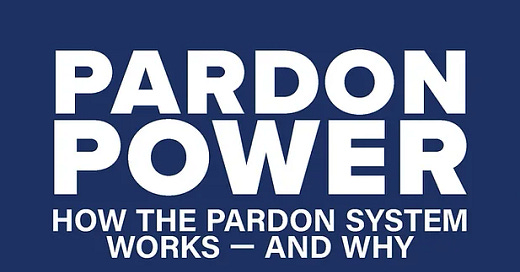After SCOTUS banned "universal injunctions," a judge issued a class-action injunction against Trump instead
Whether Trump's friends on the Supreme Court will allow this one to stick is unclear
The far-right majority of the Supreme Court—in a ruling that has been widely distorted as mere procedural housekeeping—just made it much harder to stop Trump’s illegal actions.
This Court is exhausting, to be perfectly honest.
I wrote about it for Zeteo.
What does Trump v. CASA mean for injunctions as a check to executive power?
The Supreme Court, in a 6-3 majority decision, held that “[u]niversal injunctions likely exceed the equitable authority that Congress has given to the federal courts.” Although this decision is widely being touted as a narrow and discrete resolution, the exact opposite is true. This decision is the biggest victory for the Trump administration since the Court manufactured criminal immunity for him last summer in Trump v. United States. This decision in practice will allow the Trump administration to issue policies and engage in practices that violate the Constitution without any concern about being stopped by lower federal courts because under the CASA decision, they can now only issue orders benefiting the named plaintiffs in particular.
This means that anyone whose rights have been or are being violated must now find their own lawyer, file their own separate lawsuit, and secure their own personal injunction against Trump and the administration in order for the Constitution to have any teeth to protect them with. In the meantime, Trump and his administration are free to violate the Constitution with impunity against anyone who does not have a particularized court decision enforcing their constitutional rights. Put simply, nationwide injunctions are no longer a tool that can be used to stop this administration from violating people’s constitutional rights en masse.
Now, to enforce your rights, you must hire a lawyer (i.e., pay for one), file a case, wait for the case to be heard, and secure a judgment in your favor all to prevent the Trump administration from violating your rights, which are supposed to be unalienable, guaranteed, and protected.
Does this decision only affect birthright citizenship?
Put simply, no. This decision reaches far beyond the issue of birthright citizenship; it leaves open an avenue for the Trump administration to retaliate against anyone in America that opposes them. Justice Ketanji Brown Jackson painted a frightening picture in her dissent:
“Imagine an Executive who issues a blanket order that is blatantly unconstitutional—demanding, say, that any and all of its political foes be summarily and indefinitely incarcerated in a prison outside the jurisdiction of the United States, without any hearing or chance to be heard in court. Shortly after learning of this edict, one such political rival rushes into court with his lawyer, claims the Executive’s order violates the Constitution, and secures an injunction that prohibits the Executive from enforcing that unconstitutional mandate. The upshot of today’s decision is that, despite the rival’s success in persuading a judge of the unconstitutional nature of the Executive’s proclamation, the court’s ruling and injunction can only require the Executive to shelve any no-process incarceration plan that targets that particular individual (the named plaintiff); the Executive can keep right on rounding up its other foes, despite the court’s clear and unequivocal pronouncement that the executive order is unlawful.”
This newsletter unpacks the law in plain language. Please share it widely — and if you can, consider upgrading to paid.
I’m immensely grateful for your support!
Coverage of the CASA decision has mostly overlooked its tolerance of presidential lawlessness, as universal injunctions have plagued presidents for decades. The majority left room for state governments to secure medium-sized injunctions and for plaintiffs to try and get wider injunctions via cumbersome class action lawsuits instead. But we have yet to see how meaningful these exceptions will be in practice.
Are class action lawsuits still a path for broad relief?
Keep reading with a 7-day free trial
Subscribe to Simple Politics with Kim Wehle to keep reading this post and get 7 days of free access to the full post archives.



